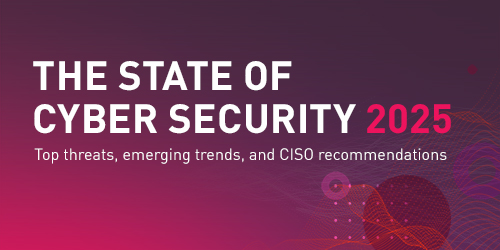Importance of Endpoint Protection
Endpoint protection is vital in light of the extent and severity of cyber threats that target or originate from endpoints. Enterprises in particular face unique challenges in maintaining security across a diverse network environment, multiple geographically distributed offices, and a remote workforce.
Endpoint security impacts many key areas:
- Prevention of Unauthorized Access: Endpoint protection solutions block known potential threats, detect anomalies, and enforce security policies. These capabilities help to prevent malicious actors from gaining unauthorized access to networks and sensitive data.
- Compliance with Regulatory Standards: Data protection regulations such as GDPR and HIPAA require careful handling of personal data. Endpoint protection helps you stay in compliance by demonstrating that appropriate technical and organizational security measures are in place.
- Minimizing Downtime: Implementation of an endpoint protection solution is a proactive step to identify and remediate threats. Effective endpoint security ensures business continuity and reduces the risk of broad disruption to productivity as a result of a security incident.
Core Functions of Enterprise Endpoint Protection
Here are the key functions of enterprise endpoint protection.
Data Protection
Encryption of sensitive data stored on endpoints ensures that information is protected from unauthorized access in the event a device is lost, stolen, or otherwise compromised.
These protections also extend to the transfer of data. Enterprise endpoint protection often offers data loss prevention (DLP) to monitor and control the movement of data through endpoints, preventing unauthorized leaks or exfiltration of information.
Prevention
Endpoint protection solutions rely upon antivirus and anti-malware capabilities, often with modern advanced functionality that incorporates machine learning algorithms to better detect and block known and unknown malware, ransomware, and other malicious software. They additionally utilize application control allow-listing and block-listing functionality to restrict unauthorized application installation or execution.
By enforcing the usage of only approved programs, enterprises reduce risks from untrusted software.
Posture Management
In endpoint protection, posture management is a process of evaluating, improving, and maintaining the security and resilience of devices within a network. The solution typically creates an updated record of all endpoint assets, including hardware details and software versions.
Using that inventory, the endpoints are then regularly scanned to identify:
- Unpatched vulnerabilities
- Misconfigurations
- Improper user permissions
- Inappropriate group memberships
A patch management program may then be established to address any vulnerabilities identified.
Detection
These solutions combine various integrated tools and subsystems to analyze the endpoint’s suspicious activities. They may offer sophisticated machine learning or AI-enhanced anomaly detection to identify risks based on behaviors or characteristics rather than traditional signatures or pattern-matching.
This helps you to rapidly identify unusual behavior indicative of a security threat.
Logging and reporting capabilities aid in the identification, containment, and remediation of any threats detected, facilitating post-incident investigations.
Threat Intelligence
Endpoint protection solutions rely upon threat intelligence feeds which provide real-time information about:
This enables enterprises to prioritize mitigation efforts by their potential severity and impact, allocate resources accordingly, and ultimately strengthen their security posture by proactively addressing risks.
Enterprise Endpoint Protection vs. Consumer Endpoint Protection
Consumer products tend to focus on basic antivirus functionality and typically lack advanced features and management capabilities. They are acceptable for individuals, families or even small business teams with minimal security requirements.
On the other hand, enterprises have large and diverse IT environments, and therefore require endpoint protection solutions suitable in that context:
- Scalability: Enterprise solutions must offer easy deployment and management options to secure thousands of devices, with flexibility to accommodate growth in the organization. These solutions can adapt to a wide variety of networks, operating systems, devices, and application configurations.
- Advanced Policies: Enterprise-focused solutions must have advanced capabilities that enable granular control over devices, such as allowing or disallowing access to certain file locations, scripts, command line interfaces, or services running on the device.
- Integration with Infrastructure: Enterprise solutions offer integration with existing security tools. For instance, they may provide data in standardized formats for SIEM systems, enabling improved logging and monitoring capabilities. Or they may offer application programming interfaces (APIs) for custom integration with third-party tools.
Whether these advantages are available “out of the box” or as optional add-ons, enterprise-grade solutions allow businesses to tailor their protection based on elevated risk profiles and specific compliance requirements.
Enterprise Endpoint Protection with Harmony Endpoint
Endpoint protection is an important component in any organization’s security strategy. Safeguarding the devices within the network reduces the likelihood of a data breach, minimizes downtime, and protects the brand reputation. Review the Buyer’s Guide to Endpoint Security to gain further valuable insights into endpoint protection systems.
Check Point Harmony Endpoint is an industry-leading endpoint security solution to protect against sophisticated threats, improve adherence to regulatory requirements, and ensure continued productivity. With enhanced ransomware and malware protection, automated vulnerability management, phishing attack defenses, and advanced DLP and encryption capabilities, Harmony Endpoint revolutionizes endpoint security in the enterprise.
Book a demo of Harmony Endpoint to experience state-of-the-art endpoint protection of valuable organizational assets and data.





